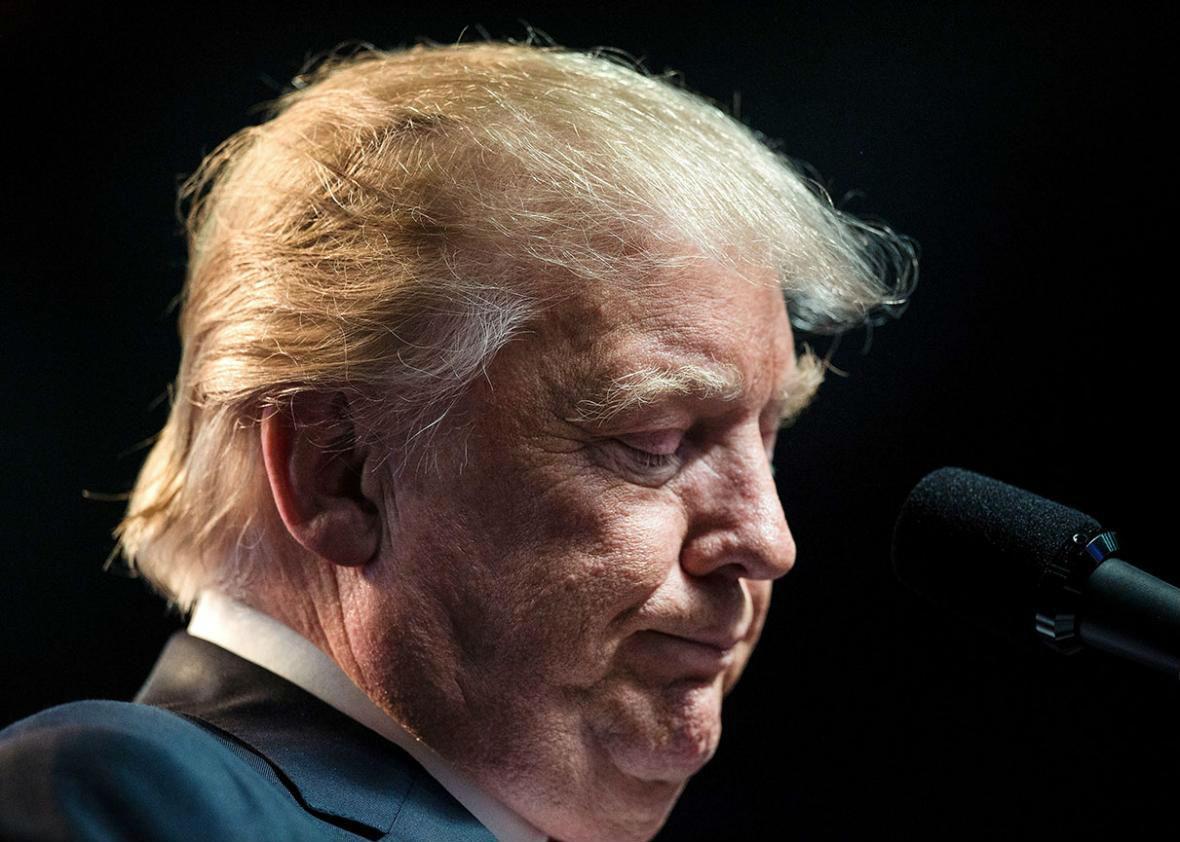If you thought Trump's travel ban was bad, what he has planned next for American Muslims could be devastating
Designating the Muslim Brotherhood and all its affiliates as terrorist organisations will have a huge impact within the US on the civil society groups that hold the American Muslim community together

Your support helps us to tell the story
From reproductive rights to climate change to Big Tech, The Independent is on the ground when the story is developing. Whether it's investigating the financials of Elon Musk's pro-Trump PAC or producing our latest documentary, 'The A Word', which shines a light on the American women fighting for reproductive rights, we know how important it is to parse out the facts from the messaging.
At such a critical moment in US history, we need reporters on the ground. Your donation allows us to keep sending journalists to speak to both sides of the story.
The Independent is trusted by Americans across the entire political spectrum. And unlike many other quality news outlets, we choose not to lock Americans out of our reporting and analysis with paywalls. We believe quality journalism should be available to everyone, paid for by those who can afford it.
Your support makes all the difference.Imagine your morale if you were a Muslim living in America right now. What could be worse than having a president who has launched a calculated assault against your community? How about the signing of a new bill that has the power to intimidate, silence, and imprison Muslims for being politically engaged?
The Muslim Brotherhood Terrorist Designation Act bill, currently sitting in Congress, comes against the backdrop of a travel ban on citizens from seven Muslim countries, the revamping of a US counter-terror program to focus solely on “radical Islamic extremism”, and a series of disconcerting responses to terrorism from the new President – from a shouting caps tweet about the Egyptian knife-wielding attacker at the Louvre in Paris, to total silence after six Canadians were gunned down inside a Quebec mosque by a right-wing nationalist.
But this bill, if passed, is pretty much the icing on the cake for American Muslims.
Proudly introduced by Republican Senator Ted Cruz in January, the act is designed to “protect against the violent jihad carried out by the Muslim Brotherhood affiliates both in the United States and the rest of the world”. Formally branding the Brotherhood a terror group, Cruz says, will enable “the US to take action that could stifle the funding they receive to promote their terrorist activities”.
Blacklisting an Egyptian group with alleged links to terrorism has a direct impact on American citizens because these “affiliates” encompass several US Muslim advocacy organisations, including the Council on American-Islamic Relations (Cair), the Islamic Society of North America (ISNA) and the Muslim Students Association (MSA).
Cair is the largest and most influential civil society group in America and, according to policy experts, faces the highest likelihood of being shut down as a result of this ruling.
It’s hard to come across a Muslim in America that hasn’t heard of or supported a Cair event since it was founded in 1985. The grassroots organisation has earned a strong reputation among civil liberties groups for pushing back against biased media portrayals of Islam and encouraging American Muslims to participate in political and social activism. This group has played a key role in the US Muslim immigrant success story.
It’s not the first time Cair has been threatened. The Terror Designation bill marks the fifth consecutive year lawmakers have introduced legislation to blacklist the Muslim Brotherhood, but there’s a reason why it’s never previously been passed: US foreign policy and counter-terror experts generally do not view the group as a threat to US national security. A British Government investigation last year also determined that, while the Muslim Brotherhood had some ties to extremism, it was not a terrorist group. Neither are its far-flung US affiliates.
Yet US lawmakers under Trump have never been more optimistic that the bill will finally pass this year and the impact on civil liberties, advocates and academics say, is terrifying. As Sussan Siavoshi, a political science professor at Trinity University in Texas, puts it: “If Cair, a civil society group, becomes designated as a terror organisation, what are people’s options if they want to become involved in politics? Some may become inactive, but others may start underground violence or movements.”
If the idea of branding an advocacy organisation a “terrorist” group sounds far-fetched, consider this: in 2012 the largest Muslim charity in the United States, the Holy Land Foundation, was shut down, its assets frozen and five of its leaders arrested by the FBI. They remain behind bars for allegedly funding Hamas and several charitable groups, some of which were not even listed for having links to terrorism.
“Concerned about a Muslim registry? This is the Muslim registry,” says Mike Merryman-Lotze from the American Friends Service Committee in Philadephia. “This is an exceptional move. If this bill passes, that determination will be a political act, not an act based on the advice, review, and findings of the US officials responsible for making these decisions within the State Department and Security Services.”
“This is when resistance action is needed,” he adds.
But it’s hard to resist when the myth that Cair equates to the Muslim Brotherhood, and that the Muslim Brotherhood is trying to take over America, is so widely spread in the Breitbart media world.
When Trump vowed to establish a Muslim registry, the Jewish Anti-Defamation League (ADL) stood up in defiance. Jonathan Greenblatt, chief executive of ADL, told an anti-Semitism conference in November he would register as a Muslim if need be. But if this bill is passed, will the ADL and other groups like it stand up and support Cair? This is a test of our civil society.
Join our commenting forum
Join thought-provoking conversations, follow other Independent readers and see their replies
Comments